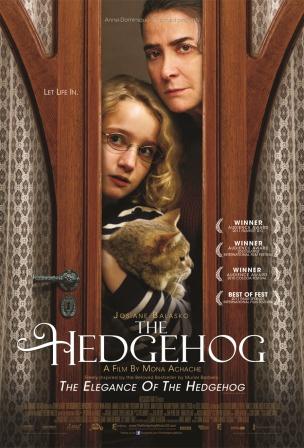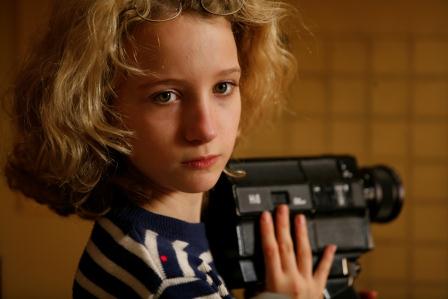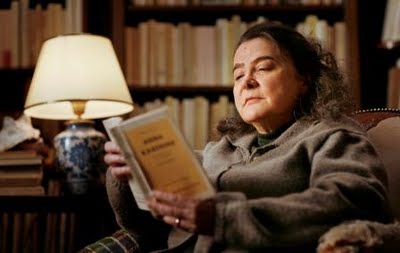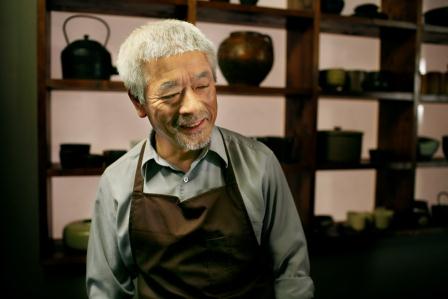The "power of one" is often unavoidable. The numeral one, after all, is the first integer. One is also the term used to designate a person's singularity. Popular slogans such as "One person, one vote" and "One for all and all for one" have become a part of our political landscape.
We often speak of "one shining moment," "one giant step," "winning one for the Gipper," or "one for the record books." However, when things come down to an extremely personal level, the concept of "one" can go in various directions. During his run for the White House (as well as since becoming President of the United States), Barack Obama has cynically been referred to as "The One." In the following video, Harry Nilsson's song, "One," gets the Claymation treatment:
The big finale in Michael Bennett's 1975 show, A Chorus Line, is also entitled "One." In this number, all of the dancers who were chosen during auditions get to appear as anonymous members of a chorus line worshiping the "one" who is that special star. The following clip, taken from a 1980 television special entitled "Baryshnikov On Broadway," gives Bennett's number the full-blown treatment it deserves, allowing audiences to examine its brilliance from both sides of the footlights.
Sometimes, however, being an individual is not about glamor or loneliness. Sometimes it's about the people who manage to stay under the radar. Whether they need to remain invisible (due to their participation in a witness protection program), prefer not to draw attention to themselves, or are easily overlooked, many of these people provide plenty of source material for writers and filmmakers.
- In 1925, the silent film adaptation of Gaston Leroux's novel, The Phantom of the Opera, gave Lon Chaney one of his greatest film roles.
- In 1993, Mel Gibson directed and starred in The Man Without A Face.
- In 1943, when Rodgers & Hammerstein's hit musical, Oklahoma! took Broadway by storm, the character of Jud Fry was portrayed as a lonely, bitter, and dangerous man. In the following video clip, Hugh Jackman and Shuler Hensley sing an ode to the misunderstood loner:
Sometimes self-inflicted loneliness is due to brains rather than brawn. Over the years I've met many people whose intelligence has frightened people much more than it has horses. Their lack of good looks has insured that they will go unnoticed by the "A" crowd.
Shortly after moving to San Francisco in 1972, I went on a diet and lost nearly 60 pounds. One of my roommates confided that he no longer felt afraid to be seen standing next to me (he's now a blowsy drag queen in San Antonio, Texas). The man I followed out to California snarled "If I'm nervous around you in company, it's because I never know what you're going to say."
Several years later, I wrote a piece for The Advocate about my experience of losing weight and joining a gay gym. Entitled "In Search of Designer Tits," the article mentioned how fat people are often invisible in gay society (this was before the bear revolution). I also recalled what a shock it had been, once I looked more "acceptable," to realize that people were actually cruising me.
* * * * * * * * * *
Over the years I've found solace in books like Party of One: The Loners' Manifesto (by Anneli Rufus) and Cruise To Win (by Lenny Giteck). On occasion, I've wondered what kind of movie could be made about a curmudgeonly romantic.
The answer to that question can be found in The Hedgehog, a poignant film adaptation of Muriel Barbery's 2006 novel, The Elegance of the Hedgehog. The action mostly takes place in a Parisian building that houses eight luxury apartments on one of the most elegant streets in the Left Bank. Most of the building's inhabitants are upper class families with fairly superficial interests.
The Josse family is headed by Paul (Wladimir Yordanoff), a retired politician/bureaucrat whose wife (Anne Brochet) has been on anti-anxiety medications while going to therapy for the past 10 years. Their two daughters are Colombe (Sarah Le Picard), who resents her younger sibling and prefers to dote on her goldfish, and the precocious, 11-year-old Paloma (Garance Le Guillermic).

Poster art for The Hedgehog
Paloma, to put it mildly, is a piece of work. Intelligent, articulate, and artistically gifted, she thinks the adults in her life are vain fools. She has no friends and rarely condescends to speak with her family.
Instead, Paloma spends most of her time filming the goings on in her apartment building for her video diary and making pencil drawings (which evolve into animation sequences in the film). Her disgust with what the future might bring has caused Paloma to set June 16th (her 12th birthday) as the most logical date to commit suicide. While she has considered jumping from her bedroom window, she has also been hoarding and crushing her mother's anxiolytic pills.
Garance Le Guillermic as the precocious and suicidal Paloma
With the intense curiosity of an 11-year-old, Paloma has also let her sister's goldfish swallow one of her mother's pills. The pet's resulting trip to "toilet heaven" becomes an important turning point later in the film.
Another target of Paloma's curiosity is the building's rather odd janitor, Renée Michel (Josiane Balasko). A frumpy old widow who has worked in the same job for 27 years, Renée does her job well but lacks basic social skills. Nor does she have much patience with the building's rich tenants.
Renée (Josiane Balasko) digs into a copy of Tolstoy's Anna Karenina
Instead, she prefers to hide in a room filled with books and listen to music in a place where she can read Tolstoy to her big, fat cat (appropriately named Leo). Although she must occasionally prevent one of the local homeless people, Jean-Pierre (Jean-Luc Porraz), from hurting himself, Renée prefers to keep to herself.
Now 54, Renée's take on life is that "to be poor, ugly and, moreover, intelligent condemns one, in our society, to a dark and disillusioned life, a condition one ought to accept at an early age." Her situation changes, however, when a rich, elderly Japanese widower named Kakuro Ozu (Togo Igawa) moves into the building.
As he is being introduced to Renée by one of the tenants, Ozu quickly catches her use of a phrase from Anna Karenina. When Kakuro invites her to dinner, Renée is as horrified by the thought of having to dress up as she is by the realization that accepting his invitation would force her to cross a distinct class barrier between the building's wealthy tenants and its poor janitor.
Togo Igawa as Kakuro Ozu
This article was cross-posted on My Cultural Landscape. To continue reading, click here.
To read more of George Heymont go to My Cultural Landscape



